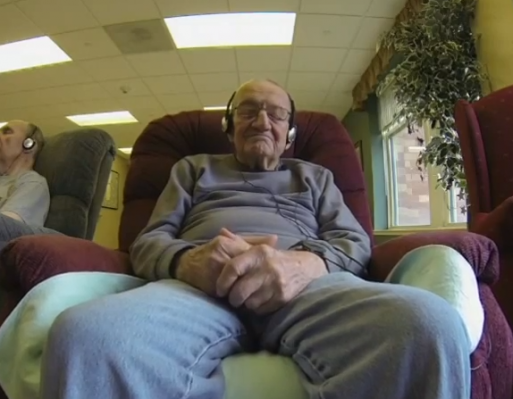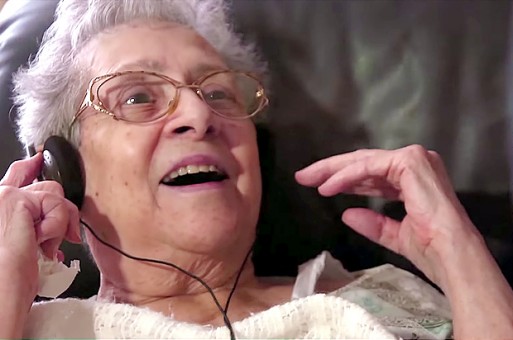It’s no secret that music and memory seem to be inextricably bound – how many times does a song come on the radio and you feel instantly transported to a moment you thought you’d forgotten? This remarkable aspect of music to jog our memory is also proving to be something that could help elderly people suffering from dementia and memory loss.
Consider the case of Ms. Cora, a 90-year-old woman living with dementia. One of Ms. Cora’s caretakers says that the elderly woman lights up when she listens to oldies and that implementing music is one of the best ways to “reach” someone with dementia when they have moments of “slipping away.”
There’s currently a lot of media buzz surrounding the subject, with films like Alive Inside chronicling the effects of music on those struggling to keep their memory in tact. But how exactly can the positive effects of music be explained? Neurologist Oliver Sachs says that, “Music evokes emotion, bring[ing] with it memory… it brings back the feeling of life when nothing else can” and that “by pairing music with everyday activities, patients can develop a rhythm that helps them to recall the memory of that activity, improving cognitive ability over time” (Alzheimers.com).
MHS graduate and author Linda Maguire led a study on the relationship between memory and music, and says that recent studies have only fortified the belief that “musical aptitude and appreciation are two of the last remaining abilities in patients with Alzheimer’s,” making it one of the best “tools” for working with them. At a Society for Neuroscience meeting in San Diego this month, one study’s results showed that “before and after the musical treatment period, the patients took tests measuring their cognitive ability and life satisfaction. Researchers found that while the singing and listening groups rated similarly at the start of the study, four months later the singers ‘scored significantly better than the listeners’ in both tests.”
Have you noticed a rise in the public interest of music in relation to memory? What more do you hope to learn about its potential for memory loss prevention? We look forward to your comments below.
Check out more Science of Us posts here.

 Fighting Dementia with Music
Fighting Dementia with Music




 “As Tears Go By” by Marianne Faithfull
“As Tears Go By” by Marianne Faithfull
 “The Sea” by John Banville
“The Sea” by John Banville
 Funeral Favors Offer Visitors a Tangible Memento
Funeral Favors Offer Visitors a Tangible Memento















